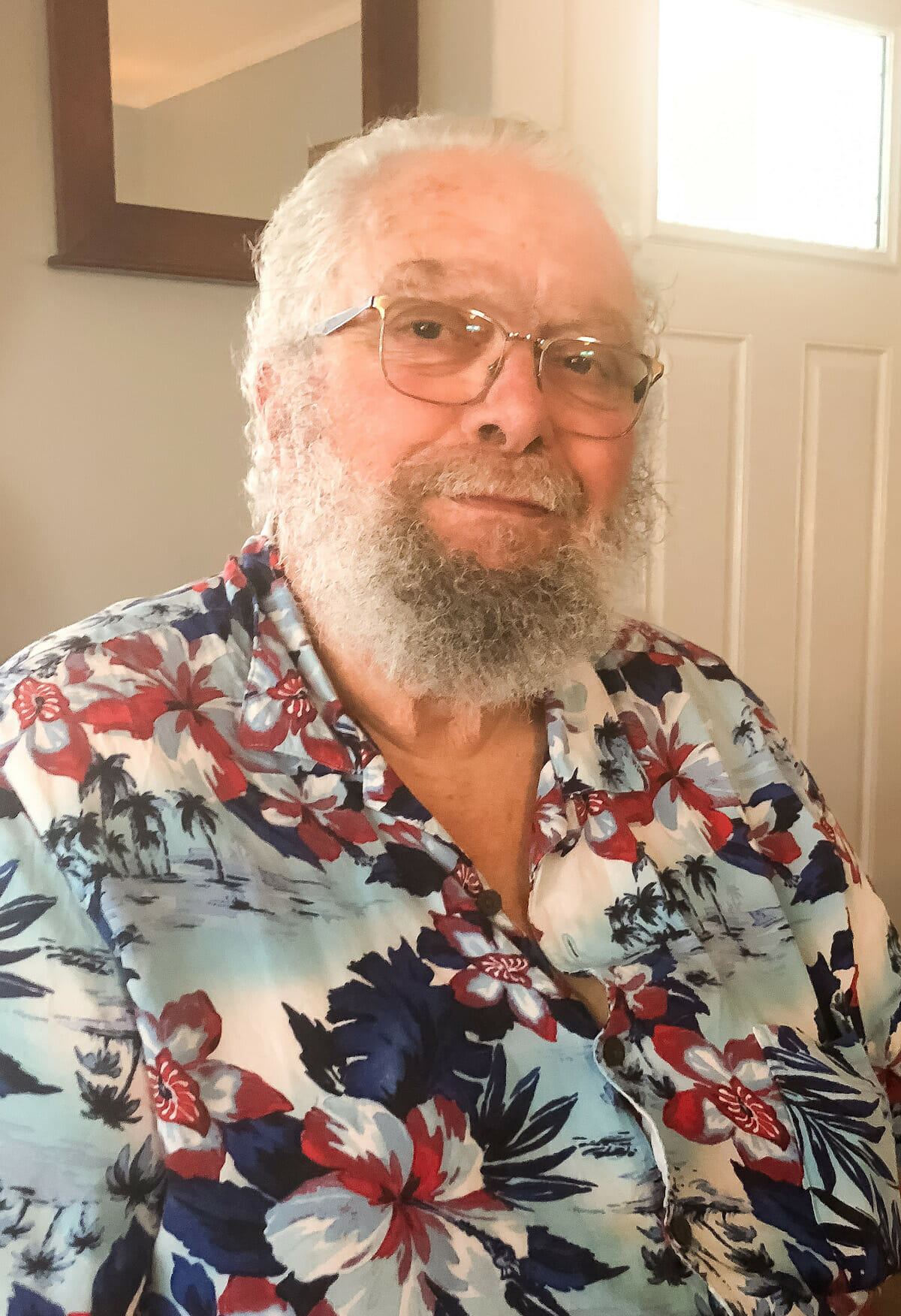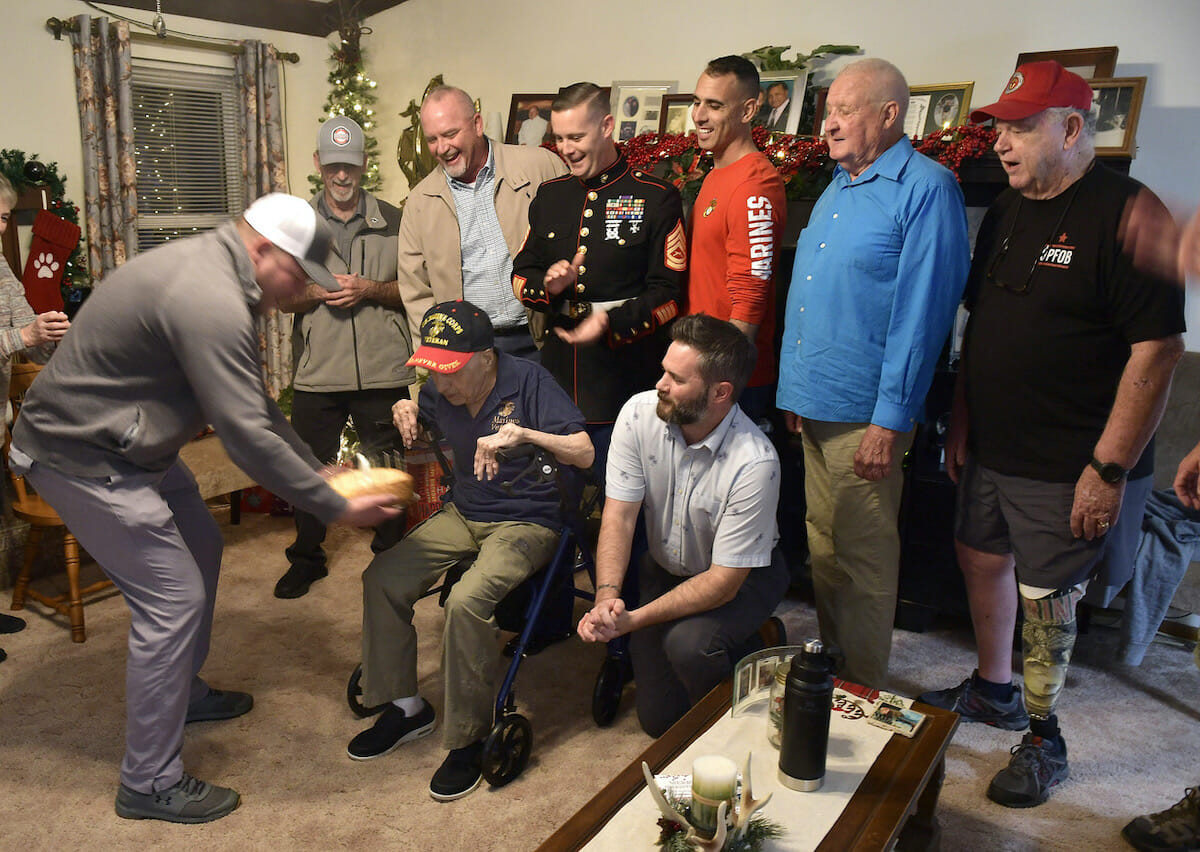This week’s article is the second and final part of a two-part series on how veterans can get VA medical records in-person, by fax, and online and how to get copies of their Department of Defense Health records on the TRICARE website.
Last week, Lowcountry S.C. and Ga., veterans learned that they can get a copy of their VA medical records at the Ralph H. Johnson VA Medical Center’s Medical Records Office, located on the first floor, in the Welcome Center, at 109 Bee Street, Charleston, SC 29401. The phone number for the RHJVA Med Center Medical Records Office is 843-577- 5011, ext. 206333 the direct phone number is 843-789-6333 and the FAX number is 843-579-3783.
Question 5: How does a veteran get his or her medical records from their VA health facility?
Veterans can get a complete copy of their VA medical records directly from their VA health facility. Read the VHA website page titled How to get your medical records from your VA health facility, which is found at https://bit. ly/3VCO47p.
Question 6: How does a veteran submit a medical records request to their VA Health Care facility?
Veterans need to fill out an individual request for a copy of their own health information, VA Form 10-5345a. Veterans can download the form at https://bit.ly/3VWo9b2.
Veterans should submit their completed form 10-5345a to their VA health facility’s medical records office. This office is also called a Release of Information Office. As mentioned earlier, veterans can submit their forms by mail, by fax, or in person. Veterans should bring their Veterans Health Identification Card or driver’s license when visiting a VA Medical Records Office.
Question 7: How can a veteran find their medical records office?
Veterans should follow these steps to find contact information for their VA health facility’s medical records office:
- Find your VA health facility at https://www. va.gov/find-locations.
- On your health facility’s website, scroll to the “In the spotlight” box.
- Select “Access your health records.” This will bring you to a page with contact information for the medical records office.
Note: If a veteran receives care at a Community Based Outpatient Clinic (CBOC) or Outpatient Clinic (OPC), they should call the medical records office before going to the CBOC or OPC for Medical Records. Veterans should ask the CBOC or OPC if they have their records. Veterans may need to request their records through a VA medical center instead of the clinic.
Question 8: How long does it take for a veteran to get their medical records?
The time it takes for the VA to provide a veteran’s medical records depends on how the VA is storing the records and other factors (like high demand and staff shortages) like the RHJ VA Medical Center is currently experiencing:
If a veteran’s records are in an online system, it may take up to 30 calendar days.
If your records are on paper, it may take up to 60 calendar days or longer. This usually applies to records created before 1998.
Veterans should allow time for the VA to process their medical records requests. If the VA estimates it will take them longer than expected, the VA should send the veteran a letter in the mail. If a veteran does not get a letter within 20 calendar days, they can contact the VA. Contacting the VA before then may cause a further delay.
Question 9: How can a veteran get copies of their Department of Defense (DoD) Health records on the TRICARE website?
Learn how to get DoD Health Records on the TRICARE website at https://bit. ly/3UDZirs. Military members and veterans should keep copies of their medical documentation, records, and health care history information for their own reference (and future VA Claims for disability). To learn more about why military members and veterans need to keep good health records, read The Island News article titled, “Why military members should keep good records of injuries and illnesses,” which was published on Nov. 18, 2020. Find that article at https://bit.ly/3Bd1BuF.
If a veteran gets most of their medical care at military hospitals or clinics, the veteran will have a DoD electronic health record. Read about the Military Health Record System (called MHS GENESIS) and how to log into the GENESIS patient portal at https://bit.ly/3F5SXzl.
If a veteran is retired or separated after Jan. 1, 2014, paper copies of their Service Treatment Records (STRs) were digitized following their retirement or separation from the Armed Forces. If a veteran’s STRs do not contain information classified as sensitive, they will be available via their Patient Portal, either TRICARE Online or MHS GENESIS.
To request a copy of your health record, you’ll need to submit a Request Pertaining to Military Records (SF 180) to the applicable organization as identified on the form. Download the SF 180 form at https://bit. ly/3F980Iy. Requests can also be made in person to your last home military hospital or clinic. Civilian providers may keep paper records or use a private electronic health record system
Question 10: Will the VA protect a veteran’s personal health information?
Yes – https://bit. ly/3VCO47p is a secure website. The VA follows strict security policies and practices to protect personal health information. However, if a veteran prints or downloads anything from the website, the veteran needs to take responsibility for protecting that information.
Question 11: How does VA share my health information with providers outside VA?
The Veterans Health Information Exchange (VHIE) program allows the VA to securely share a veteran’s health information with participating community care providers in the VA’s network. VHIE also lets the VA share a veteran’s healthcare information with the Department of Defense.
VHIE gives a veteran’s healthcare provider(s) a more complete understanding of the veteran’s health record. This more complete understanding can help a veteran’s provider make more informed treatment decisions. The VA shares a veteran’s health information with participating community providers only when they’re treating the veteran.
If a veteran does not want the VA to share their information through VHIE, the veteran can opt-out at any time. Learn more about VHIE at https://bit.ly/3VVKp52.
Question 12: What if I have more questions?
Veterans and their family members (nda civilian providers) can get more information in any of these ways:
Read the FAQs pages on the My HealtheVet web portal VA Blue Button FAQs at:
VA health summary FAQs at https://bit. ly/3FEk721.
VA medical images and reports FAQs at https:// bit.ly/3iHSTyo.
Call the My HealtheVet help desk at 877-327-0022 (TTY: 800-877-8339) Monday through Friday, 8 a.m. to 8 p.m.
Contact the VA online through My HealtheVet at https://www.myhealth. va.gov/contact-us.
Larry Dandridge is a Vietnam War wounded warrior, disabled veteran, ex-Enlisted Infantryman, ex-Warrant Officer Pilot, and retired Lt. Colonel. He is a past Veterans Service Officer, a Patient Adviser at the RHJ VA Hospital, the Fisher House Charleston Good Will Ambassador, and the VP for Veteran Affairs for the local Army Association Chapter. Larry is the author of the award-winning book Blades of Thunder and a contributing freelance writer with the Island News. Contact him at LDandridge@earthlink.net or 843-276-7164








